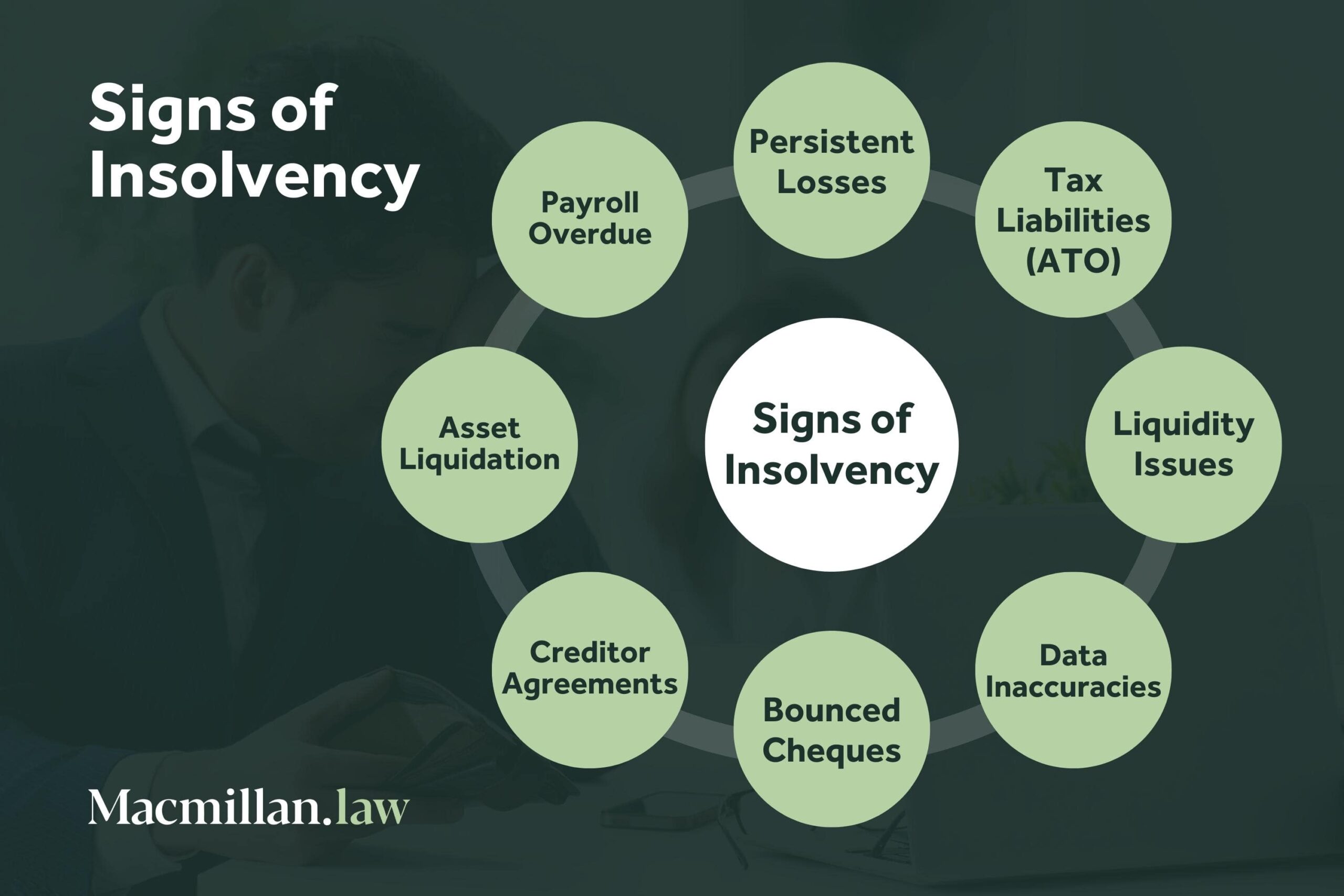Insolvency Practitioner - The Facts
Insolvency Practitioner - The Facts
Blog Article
More About Insolvency Practitioner
Table of ContentsThe Basic Principles Of Insolvency Practitioner Some Ideas on Insolvency Practitioner You Need To KnowGetting My Insolvency Practitioner To WorkHow Insolvency Practitioner can Save You Time, Stress, and Money.An Unbiased View of Insolvency PractitionerThe 4-Minute Rule for Insolvency PractitionerSome Known Questions About Insolvency Practitioner.
Bankruptcy is when obligations are more than the worth of the business, or when a borrower can not pay the financial obligations they owe. A company can end up being insolvent because of a number of circumstances that result in inadequate cash flow. When faced with bankruptcy, a service or person can get in touch with lenders directly and restructure debts to pay them off.
Service owners might speak to lenders straight and restructure financial obligations right into more workable installments. Financial institutions are commonly open to this approach because they desire to be paid back and prevent losses, also if the payment is on a delayed routine.
The proprietor develops a proposition outlining how the financial debt may be restructured making use of expense reductions or various other prepare for support. The proposal reveals creditors just how the business might produce enough cash money circulation for profitable procedures while paying its financial obligations. Usually, a forgiven debt might be thought about earnings by the Irs (INTERNAL REVENUE SERVICE).
How Insolvency Practitioner can Save You Time, Stress, and Money.
When an organization has actually to pay boosted rates for goods and solutions, the firm passes along the cost to the customer. Instead of pay the increased price, lots of consumers take their company elsewhere so they can pay much less for a service or product. Shedding clients leads to shedding revenue for paying the business's financial institutions.
When operations discontinue, so does the company's revenue. Some business come to be bankrupt because their goods or services don't evolve to fit customers' altering requirements.
The 6-Minute Rule for Insolvency Practitioner
Expenses surpass revenues and expenses continue to be unpaid. Kinds of insolvency include cash-flow bankruptcy and balance-sheet insolvency. Cash-flow insolvency takes place when a business has the assets to cover their debts yet they are in the wrong type, such as property instead of liquid funds. Balance-sheet bankruptcy, on the various other hand, suggests an absence of possessions in any kind of form to cover debts.
The internal revenue service states that a person is bankrupt when the overall liabilities surpass total properties. Insolvency Practitioner. A bankruptcy, on the various other hand, is an actual court order that depicts just how a bankrupt person or company will pay off their financial institutions, or just how they will sell their possessions in order to make the repayments
A Biased View of Insolvency Practitioner
If that situation extends longer than expected, it can bring about bankruptcy. When a company or individual is bankrupt, they can not meet their financial responsibilities. Solvency is when you have adequate funds to cover the payments you owe. A company is thought about solvent when they have extra assets than liabilities.

Comprehending the factors that can result in bankruptcy, such as overspending, can assist you stop insolvency and its repercussions.
Insolvency Practitioner - Truths
It is well understood that supervisors and policemans of firms (and managers of restricted obligation firms) owe fiduciary tasks to their companies and their investors (or participants). These fiduciary commitments are defined by state statutes and, though there are variants from state to state, they usually include a task of commitment and a task of treatment.
The task of treatment click resources needs directors and officers to exercise persistance, to make enlightened choices, and to visit the website act in good belief so that their actions remain in the very best rate of interest of the business. Though beyond the range of this conversation, some states enable these responsibilities to be limited either by so keeping in mind in the business papers or following other needs.
What Does Insolvency Practitioner Mean?

Be careful about giving shareholders favoritism at the expenditure of financial institutions (e.g., accrediting and moneying a reward or a supply redemption). Be mindful concerning favoritism in between courses of investors. Make affordable efforts to find out all the truths prior to taking a specific course of action; supervisors should really believe that any kind of choices made are in the most effective interests of the corporation in its totality (i.e., decisions will be assessed in knowledge because of the effect of such activities on the company).
In any type of insolvency or bankruptcy case, repayments made to particular financial institutions at the cost of other lenders can be clawed back, especially if there is some link between the company and the creditor. Consider suggesting at an annual shareholder meeting (or any type of other meeting of investors) a resolution my explanation verifying that all previous service decisions and actions taken by the supervisors and policemans of the corporation were absorbed great belief after an exercise of reasonable treatment.
The Facts About Insolvency Practitioner Revealed
Completely disclose any type of personal or service relationships with parties beyond of deals entailing the corporation to avoid the appearance of a dispute of rate of interest. In reviewing potential fund raising transactions or a sale of possessions of the distressed company, be mindful that these deals might be scrutinized later on taking into account any subsequent expansion of supervisors' fiduciary responsibilities to include lenders.
Report this page